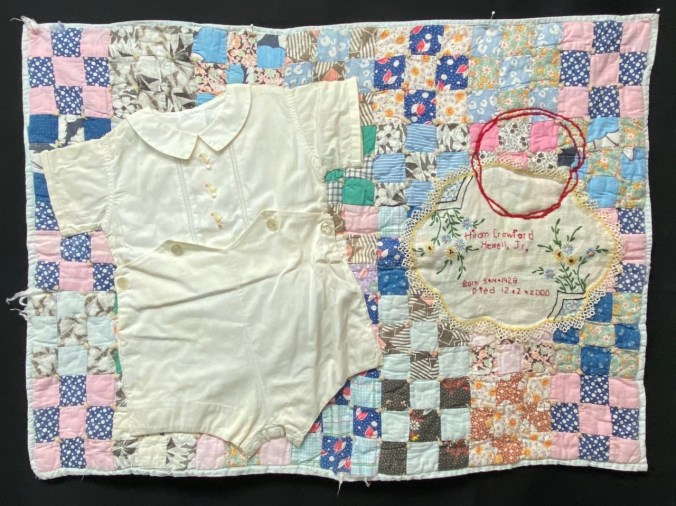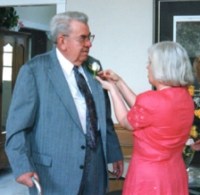
“In the language of the deaf, the sign for ‘remember’ begins with the sign for ‘know’: the fingertips of the right hand touch the forehead. But merely to know is not enough, so the sign for ‘remain’ follows: the thumbs of each hand touch and, in this joined position, move steadily forward into the future. Thus a knowing that remains, never lost, forever: memory.”
~~~ Myron Uhlberg in Hands of My Father: A Hearing Boy, His Deaf Parents, and the Language of Love
Twenty years.
My daddy died died twenty years ago today, and I still ache with grief, crave one more hug, long to hear him call me Doll just one more time. Every December 2 I become a cauldron of grief – sorrow, anger, pensiveness, no sense of direction. I usually spend the day doing soft, soulful things like writing, remembering, walking, but with the recent fullness of my life, I had no time to pre-plan. My waking thought was to read something written by someone else remembering and grieving for their daddy, and while that felt like a winner of an idea, what, exactly, I would read remained a question mark. Then, as Magic would have it, I went to the bookshelves in my studio this morning in search of another book for another reason, when the book aforementioned book leapt off the shelf and into my hands.
Remembering.
It’s what I do.
It’s who I am.
Stories of remembering are my oxygen.

In August 2000, two weeks after delivering the book I wrote about my father-in-law to each of his children and grandchildren, Bones woke me up whispering, “Write a book about your daddy, and do it now.”
“Are you kidding me?” I countered. “I am exhausted, depleted, worn slap out.” (I kept the father-in-law book a secret even from Andy, which meant much writing at night) The Voice of my Bones was not amused or swayed, and I’ve learned (the hard way) not to argue with Bones, so the following week I began gathering stories, photos, newspaper articles, interviews, whatever I could get my ears and hands on, about my daddy. I wrote. I scanned. I wrote some more, and the Monday before Thanksgiving, off it went to the printer and binder. Everybody in the family would receive a leather-bound copy of this 400+ page book of memories about Daddy.
Four days later – the day after Thanksgiving – Daddy fell, hitting his head. Hard.
The Monday after Thanksgiving, I called Karen, the book binder. “I hear voices, you see, and well, Daddy fell last Friday and the voices I call My Bones tell me I need to get those books back asap. Can you help?” Without a single audible sign of exasperation, Karen said, “I can have one book to you on Saturday and the rest next Monday.”
First-Book-Arrives-Saturday started with all Daddy’s bells and whistles going off, his machine creating a cacophony of alert. I called family members. “If you want to see Daddy alive, you need to get here before noon,” I told them. They came trickling in. Friends followed. Finally, husband Andy and son Kipp walked in, brown package in hand.
In a rather bold move for a Southern girl raised to respect hospitality above (almost) all else, I asked the friends to leave, gathered family around Daddy’s bed, and opened the package. I began reading at 1:05 p.m. A nurse stayed well past her shift’s end, keeping the machines shushed by holding her finger on the quiet button.
We took turns reading, arriving at “The End” at 4:50 p.m.
Daddy took his last breath at 4:55.
Though he never said a word, I know Daddy could hear his life review because from my position to the left of his pillow, I watched tears make their way down his face throughout the afternoon.

Take from this post whatever you will, just please promise me this:
~ If, God forbid, anybody you love should ever be in a coma or otherwise unable to communicate, take it upon yourself to make sure that only positive loving kindness is spoken within those four walls because I know – know to my very core – that they hear everything, and we all know that words are powerful.
~ You’ll take the time to capture your family’s stories. Start today. Record, write, ask, clip, copy, scan – gather and preserve those stories by whatever means available. You can shape them into narrative later, step one is to capture, and let’s face it: we never know. Preserving these stories will change your life (among other things, you will learn a lot about yourself) and future generations will call you good things and be forever grateful. Count on it.


























here ‘n there